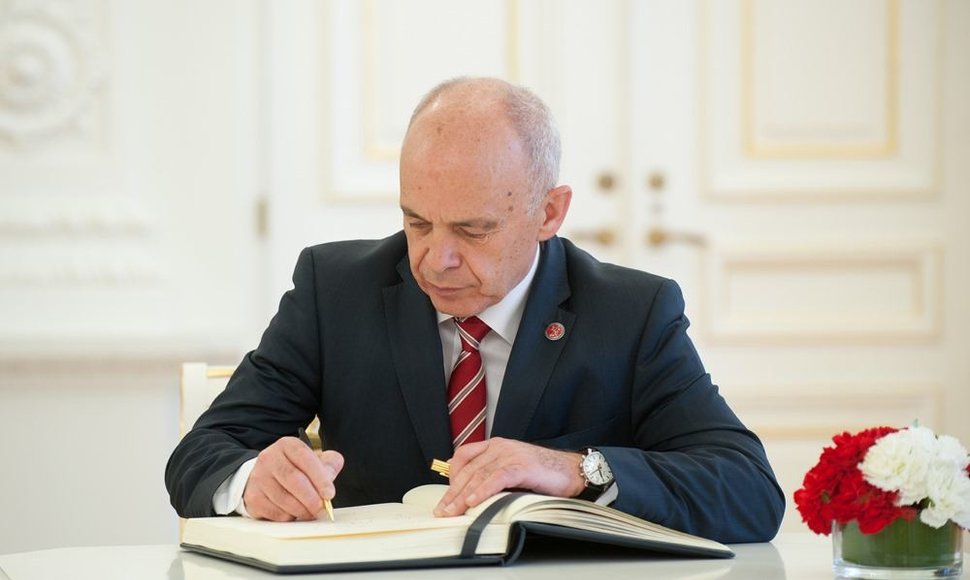"For Switzerland, probably, this problem is the most important in terms of internal politics. Of course, it will be also an important aspect of talks with the European Union," the Swiss president said after a Monday meeting with Lithuanian President Dalia Grybauskaitė.
The Swiss leader also says that problems with the EU regarding existing Swiss restrictions to immigrants from EU member states might arise next year, if the country's residents vote in favor of extending the restrictions in a referendum.
"Problems might arise, if those even more stringent restrictions are confirmed in the referendum next year. Then we'll see what to do next," he said.
According to Maurer, Swiss people are increasingly concerned about the rising number of immigrants as there are more and more foreign children at schools, they face language problems, there are more people and that leads to a drop in wages, rental prices are going up, "alongside a subjective feeling that there are more traffic jams on the highways due to a rise in immigration."
Every fourth worker in Switzerland is a foreigner, and every tenth worker is an EU citizen.
"The government wants to show it takes its people's concerns seriously," the Swiss president said.
In April, the Government of Switzerland decided to extend work permit limitations for certain EU citizens from all 27 EU member states for another 12 months.
Immigration is a burning issue in Switzerland, with the ultra-rightist Swiss Nationalist Party accusing foreigners of robbing Swiss people of their jobs.
Currently, Switzerland applies restrictions to all EU member states. Earlier, restrictions were applied to immigrants from Estonia, Hungary, Lithuania, Latvia, Poland, Slovakia, Slovenia, and the Czech Republic.
"Strange" restrictions
Switzerland's recent decision regarding immigrants from EU member states are "strange", Lithuanian President Dalia Grybauskaitė says.
"Sometimes, we see the discriminatory and double-standard approach to also European member states. For example, we saw recent decision to expand the limitations for only eight member states, which entered the EU from 2004, but not to all. (...) This mistreatment of member states is a little strange for us, also sensitive," Grybauskaitė told journalists after a meeting with Swiss President Ueli Maurer.
According to the Lithuanian president, the country needs to discuss restrictions before introducing them.
"I think that we need to talk between each other – I mean not only Lithuania and Switzerland, but EU and Switzerland - before closing the boarders to each other (…) as in the Medieval times," she said.












